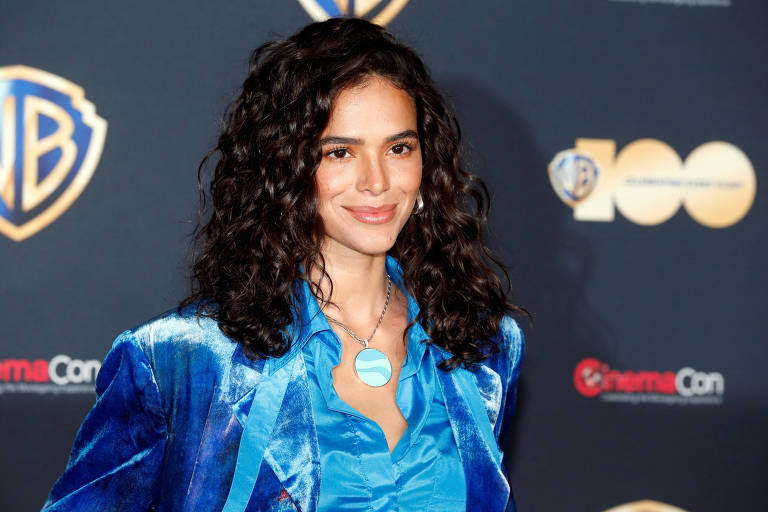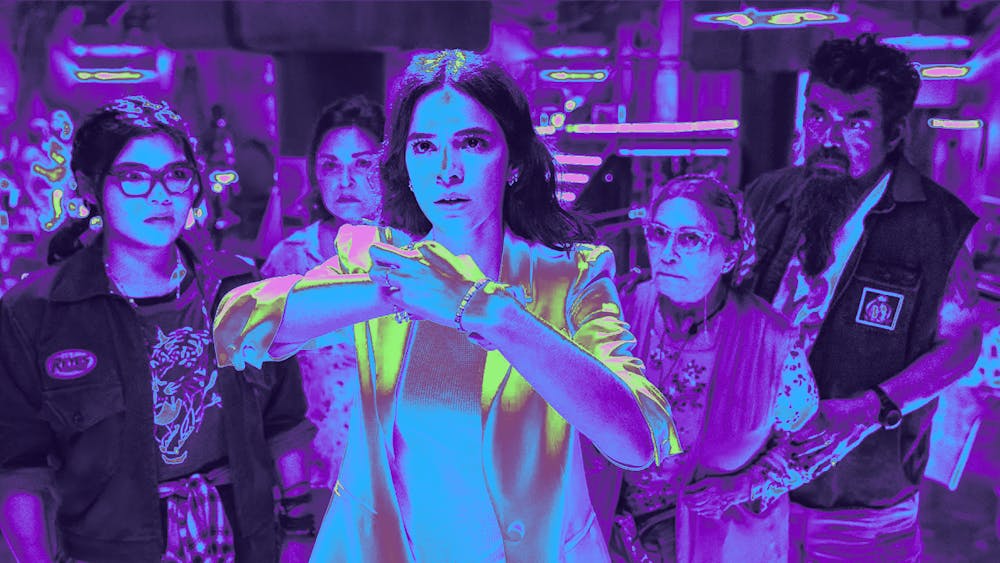In the realm of cinema history, it has become rare to be surprised by the superhero genre, especially by origin stories. Unfortunately, “Blue Beetle” adheres to a generic formula as it introduces Jaime Reyes, his family, and the alien scarab that grants him superhuman abilities. From initial reluctance to acceptance of the “call to adventure,” to personal tragedies, Jamie goes through all the commonplaces in his first live–action contact with the public. Still, the film based on DC Comics manages to stand out and disappoint at the same time, thanks to the “Latinidade” brought by director Ángel Manuel Soto.
Giving an ethnic perspective to superhero narratives is no longer a novelty; Black Panther, Shang–Chi, and Ms. Marvel have even shown that, in the right hands, these choices compensate for the recurrence of old clichés. In “Blue Beetle,” the issue is not because the stereotypes depicted in the film are offensive, but because they're lazy. Everything that comes to mind when we think of the Latino community in the United States is here, almost to the level of a caricature: from the cliché of the noisy family to the “strong–tempered” Latino woman, passing through the exaggerated taste for “El Chapulín Colorado,” to the inclusion of musical artists such as Calle 13 and Mercedes Sosa.
The movie focuses on Jaime Reyes, played by Xolo Maridueña, a recent graduate from law school who returns to his parents' house full of plans soon altered by a disastrous scenario. The family business has closed down, his father is recovering from a heart attack, and the government is about to take over their house. The Reyes live on the outskirts of the city, and bring important issues to the table, such as gentrification and lack of opportunities, even with a shallow touch of politics.

Bruna Marquezine at CinemaCon, during the promotion of the movie 'Blue Beetle', in April - Reuters/Steve Marcus
The case of "Blue Beetle" is emblematic: to Brazilians, the production appears as a vehicle for beloved Bruna Marquezine to make her Hollywood debut. Her character, Jenny Kord, plays a significant role in the film as Jaime Reyes' love interest, symbolizing a bridge between Brazilian talent and the global film industry. Moreover, to the broader Latin American community, this movie holds particular importance as it features the first starring Latino superhero.
The plot of the movie is essentially a typical superhero plot, its only difference being that Jamie comes from a family of Mexican immigrants. There lies the contradiction: the family's story flirts with tragedy, but its members often serve as stereotypical comic reliefs. An example is the rebellious grandmother, who reveals herself to be a daughter of the revolution in order to make the audience laugh. Still, the charm and heart of Blue Beetle come from the Reyes family facing significant problems together. In this regard, the cast shines, even when their roles perpetuate stereotypes that one might expect from the "Hollywood manual on Latino characters."
As DC grapples with challenges, including a string of unsuccessful releases and efforts to rejuvenate its iconic comic book series, the introduction of "Blue Beetle" offered an opportunity for a fresh start. But in its majority, the movie builds a fantasy where imperialism succumbs, the corporation redeems itself, and marginalized communities prevail with the power of family and hyper–advanced alien technology. A tempting fantasy, no doubt, even coming from a corporation that reduces the representation of a diverse community to a collection of stereotypes and takes it for granted.

